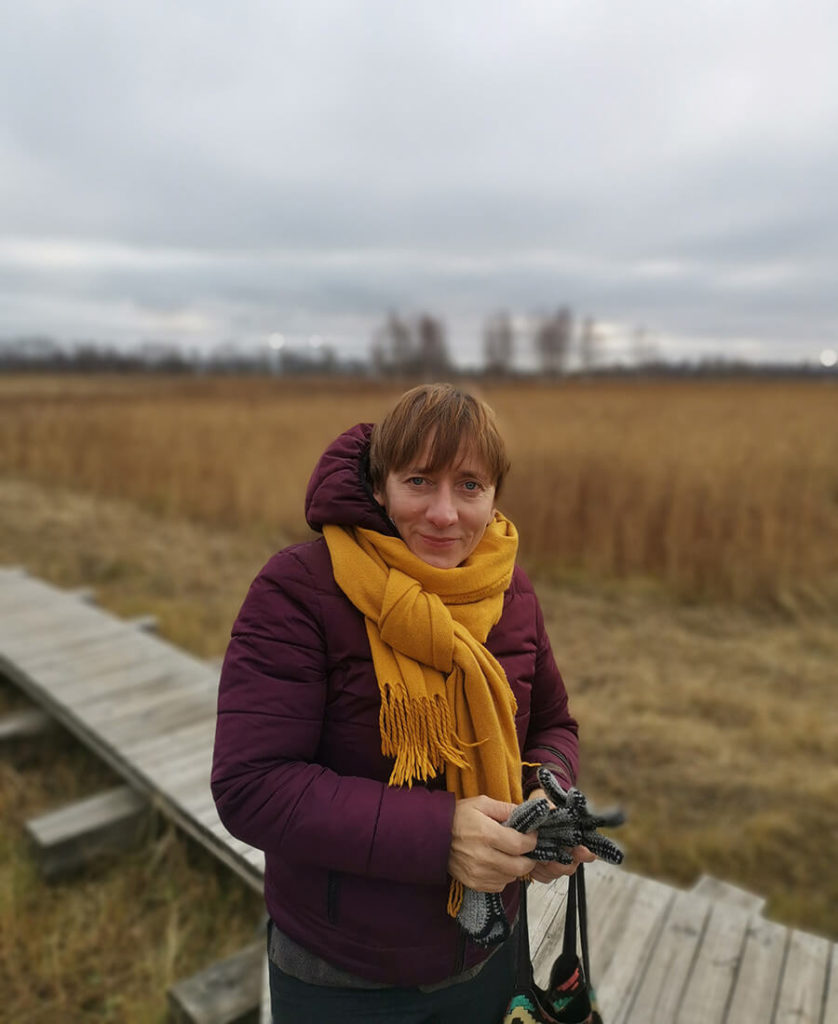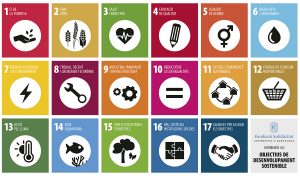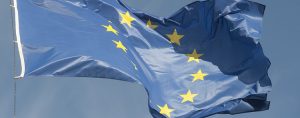On 17 February, the journalist and human rights activist took part in the dialogue el 17 de febrer en el diàleg ‘The Russia-Ukraine relationship: a long-standing conflict‘, organized by the UB Solidarity Foundation.

The University of Barcelona has interviewed journalist Oksana Chelysheva (Russia, 1968), who lives exiled in Finland since 2008. The ban on the Russian – Chechen Information Agency (RCIA) by the Russian authorities, where she worked as an editor, increased the number of threats she received, so she was forced to abandon the country. Her experiences were collected in the book “They Followed Me in the Street” (INTO, Finland, 2013). In 2014, she received the prestigious Oxfam Novib Pen Award for Freedom of Expression for “being an inspiration” in the fight for a fairer world. Chelysheva has always defended a pacific solution for Chechnya and has documented the regression of the freedom of expression in Putin’s Russia.
Last Thursday, February 17, she participated in the dialogue ‘The Russia-Ukraine relationship: a long-standing conflict‘, organized by the UB Solidarity Foundation and its European Observatory of Memories (EUROM), where she expressed her commitment to human rights and those who are vulnerable. Chelyseva was extremely critical with the informative role of the media, expressed deep disappointment with the role of the United States and claimed to listen to the Ukrainian people, who are against war.
Below, we reproduce the interview published on the website of the University of Barcelona.
We know the Russian army is near Kiev. How did we reach this situation?
The invasion of Ukraine is the greatest tragedy for Europe since World War II. Unfortunately, nobody has done anything to prevent it. I have been talking to some people who live all over Ukraine: from Kiev, Donetsk and Luhansk to Zhitomir and Sumy. I am very concerned about the future of this people, who have been victims of this political trap. My thoughts are with them.
What can we expect now?
The first step is to demand Russia to immediately leave Ukraine. It is necessary to obtain the ceasefire, to stop the shelling and to sit at the negotiation table. The future of Ukraine must be decided by Ukrainians, without people from overseas meddling into their lives or getting Russian jets and tanks involved.
Do you think Putin can be convinced to stop the war?
I have no hope regarding Putin. I have dedicated years and years to protest against the criminal war that Putin placed in Chechnya. I have lost a lot of friends too: Andrey Mironov was killed in the Ukrainian city of Slavyansk in 2014. He was killed with Andy Rocchelli, his friend and colleague. Andrey, like myself, was an opponent and critic of Putin’s politics. We were against the annexation of Crimea too.
You are very critical about the way the western media treats this issue. Why?
I am also critical on the role of Russian and Ukrainian media! I criticize everything that twists the reality and provides information that is far from the truth, as well as journalists who work in the areas that are not under the control of the Ukrainian government (Donetsk and Luhansk) and who confuse the public opinion and politicians who have to make decisions. It is a dangerous game in which the media plays an important role now.
In your conversation with the TV3 journalist Manel Alias, you said one of the most common informative mistakes is focalizing the story of the conflict on what Vladimir Putin says.
How many articles have you read in Catalonia which feature statements or interviews with Ukrainian people? Have you heard the people from Donetsk and Luhansk [separatist regions of the country]? This is why I make a call so that everyone, the media and the public opinion, listen to and respect these people. What is journalism about? Journalism is not about giving information processed by others; it is about establishing facts and verifying them, providing the audience with several opinions. This is journalism.
The entire political speech cannot and should not be focused on Putin. Ukraine, its plight and its civilians have been ignored by the media all these years. If we talk about Ukraine, let’s speak with Ukrainian people. And let’s learn to respect their opinions even if they do not match ours.
Perhaps the pressure to be the first to report the information makes it harder for the verification tasks to be properly carried out.
But we are not bloggers! We are not Facebook users! We are journalists, and our work relies on checking the information we’ll share to our audience. Who is going to validate the information if not us? I am careful with everything I publish, even if it’s on my Facebook page, because I know it can affect people who are there, or it can affect the situation. Therefore, I do not jump into conclusions quickly. Over the years, I have been in touch with observation missions, with more or less efficiency. But whenever I have received an input, I have sent it to them so they can verify it, because this is my job. The task of the international observation mission is to set the facts and then report to the public opinion and politicians.
What could be a diplomatic solution? Ukraine’s refusal to join NATO? The recognition of the pro-Russian Donetsk and Luhansk?
The involved parties should agree on some concessions. There isn’t a scenario that benefits one more than the other. To reach a peaceful situation, Russia and Ukraine have to give up on something from their wish list. Otherwise, it will not work.
Last question, who can lose more in this conflict?
I strongly believe the Ukrainian people are suffering the most in this situation. I feel it is my duty to help put the focus on the concerns of the civilians because most Ukrainians in both sides of the conflict are against war. We should not forget about separated families, grandparents, brothers and sisters, who have not seen each other for years. Therefore, the Ukrainian people are those who have suffered the most and who can lose more.
Vladimir Putin has violated the territorial integrity of Ukraine. He must face the consequences. The people of Ukraine have the right to live peacefully, a right that was taken from them in 2014.
KEY DATES OF THE CONFLICT BETWEEN RUSSIA AND UKRAINE:
- February 2014: Popular outrage in Ukraine against pro-Russian President Yanukovych, who left the country.
- March 2014: A referendum takes place in the peninsula of Crimea, the results announce the annexation to Russia wins by 97%. The international community never recognized the results.
- April-May 2014: Pro-Russian groups in Donetsk and Luhansk self-proclaim as popular republics and ask to be part of Russia. Eastern Ukraine is left outside Kiev’s control.
- September 2015: The Minsk agreements are signed by Ukraine, Russia and representatives of Donetsk and Luhansk.
- April 2019: Volodymyr Zelenskyy wins the Ukrainian presidential election. His government plans to apply to join the NATO and the European Union.
- February 2022: Vladimir Putin announces the invasion of Ukraine.
This news is related to the following SDG of 2030 Agenda:








